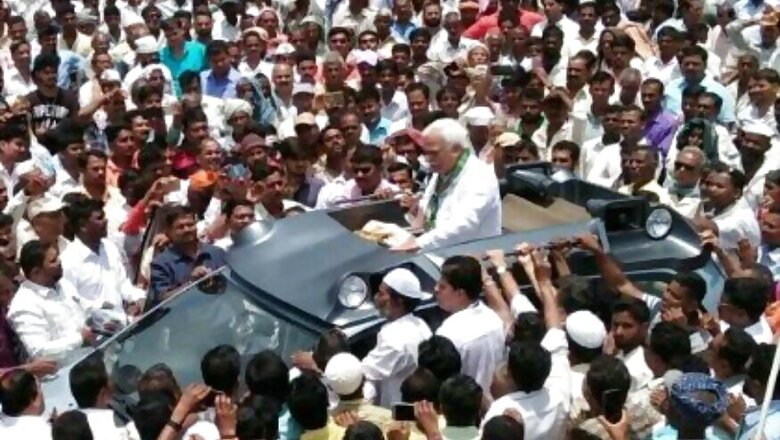
views
New Delhi: After an unprecedented marathon midnight hearing in Supreme Court, it all boils down to how the BS Yeddyurappa-led BJP government proves majority on the floor of the House.
One of the crucial roles to play here is of the new speaker who would take crucial decisions during the floor test and could also help the ruling party stay in power and help overcome the hurdles of anti-defection law.
The legislature secretariat has recommended RV Deshpande as the Pro tem speaker. Deshpande, who is an eight-time Congress MLA from Haliyal, would not have powers like a regular speaker, but he would administer oath to all the newly elected MLAs.
From here the focus would shift to the election of the regular speaker as a floor test is conducted by a regular speaker and not a Pro tem speaker.
Though constitutional expert, PDT Achary, suggests that there is “nothing constitutionally wrong in Pro tem speaker conducting a floor test”, he also added a caveat that a Pro tem speaker “can only perform the functions of a regular speaker in case the house is not able to elect one”.
Now, with the BJP government currently short of eight more MLAs to command majority in the House, would it be possible for the minority government to elect a speaker? If Yeddyurappa-led BJP is not able to elect a speaker from their own, the game for power might end and there may not be any need for a vote of confidence.
If Yeddyurappa manages to have a speaker of his choice, then even if BJP succeeds in making some opposition MLAs abstain or defect and come to BJP’s side in an attempt to narrow down the gap, then too it can get away as the Speaker has reasonable discretion in dealing with complaints under the anti-defection law.
The enormity of the discretionary powers held by the speaker is exemplified by the act of the speaker of the outgoing Karnataka Assembly KB Koliwad who did not disqualify seven legislators from the JDS who cross-voted in favour of the Congress candidate in a Rajya Sabha poll.
The Congress, along with Janata Dal (Secular) which has 116 MLAs, will most likely put up one candidate as the speaker which can ace ahead of the candidate proposed by BJP considering their majority.
There have been past instances where MLAs have voted against the whip but the Speaker has postponed the deliverance of an immediate ruling. The speaker is also not limited by any time limitation and his delayed decision may also allow the government to remain in power till the speaker takes a call.
Similar thing had happened in Andhra Pradesh, Telangana, and Uttar Pradesh too where the speaker did not given an immediate ruling but only deferred it to a later date without giving a definite ruling.















Comments
0 comment